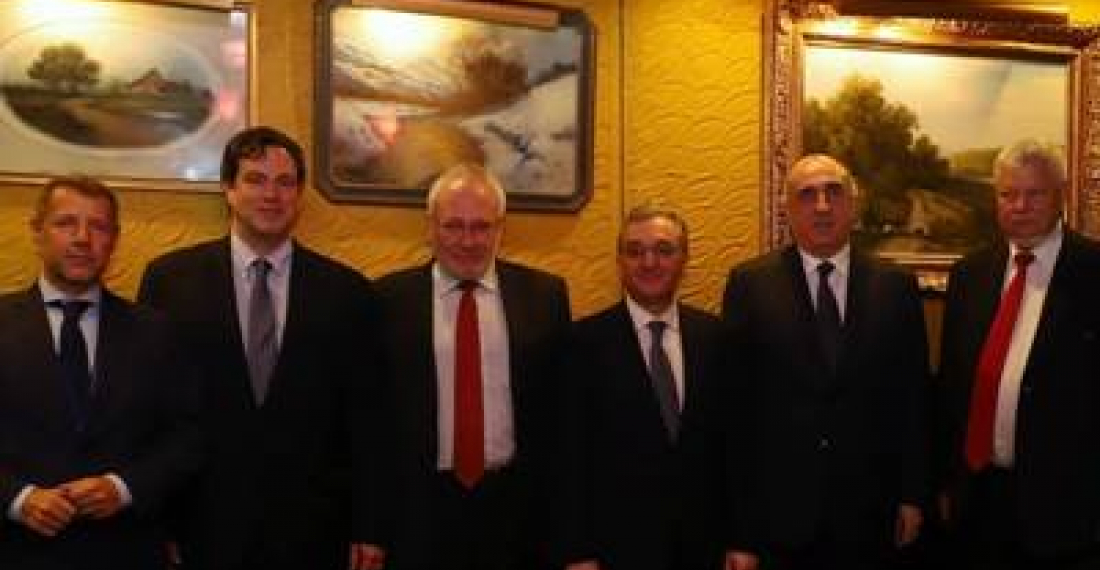В среду (5 декабря), министры иностранных дел Армении и Азербайджана Зохраб Мнацаканян и Эльмар Мамедъяров проведут встречи, направленную на разрешение нагорно-карабахского конфликта. По словам дипломатических источников в Баку и Ереване, два министра встретятся под эгидой трех сопредседателей Минского процесса ОБСЕ. Встреча состоится в Милане в рамках 25-го ежегодного совещания министров Организации по безопасности и сотрудничеству в Европе (ОБСЕ). В настоящее время Италия занимает пост председателя организации. В конце года пост будет передан Словакии.
Последняя встреча министров иностранных дел Армении и Азербайджана состоялась в сентябре в Нью-Йорке.
источник: commonspace.eu по материалам агентств
фото: Министры иностранных дел Армении и Азербайджана на встрече в Нью-Йорке с сопредседателями Минской группы ОБСЕ в сентябре 2018 года.







